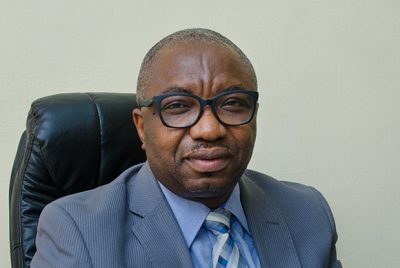By Chimezie Godfrey
#TrackNigeria -The Executive Director, Civil Society Legislative Advocacy Centre, Auwal Ibrahim Musa(Rafsanjani) has said that if the African continent does not succeed in tackling corruption in the Land and Education sectors, it cannot achieve peaceful and inclusive societies in the countries.
He made this statement Wednesday at Abuja during the Sub-Regional meeting of Transparency International where policy papers on land corruption and corruption in education systems in West Africa were presented.
During the meeting which brought together TI chapters from 10 West African countries, Auwal decried the high level of corruption in the land and education sectors in West African countries, especially in Nigeria.
“Today presents a huge opportunity for us to look into different ideas on how to tackle corruption, particularly in Land and Education sector in Africa. We have enough examples on the African continent that if we do not succeed in tackling challenges in these sectors, we cannot achieve peaceful and inclusive societies in our countries.
“Our countries experience enormous challenges with public procurement, political integrity, illicit financial Flows, migration and many others. In Nigeria alone, 17 billion USD is lost annually to illicit financial outflows. Procurement is said to be responsible for 70% of corruption proceeds.
“Detached political representation and unaccountable political and business elites have deprived Nigeria, and I believe most of the other African countries, of their development potential.
“For example, the Federal state of Niger Delta which generates most of the oil and is, by per capita, one of the richest places in the world, has a life expectancy of 41 years. Even people in the war zones reach higher age than this,” he said.
He spoke about the high of level of illiteracy in West African countries. He added that Africa is the only continent where more than half of parents are not able to help their children with homework due to illiteracy.
The human Right Activist said Land corruption has prevailed in West Africa because on one hand, citizens have limited access to information, the laws and procedures regulating land ownership are complex and there is insufficient access to justice.
He added that the lack in capacity of local land offices and traditional institutions has hindered good governance practices.
“We have a duty to ensure that ownership of land is not restricted to the rich and wealthy alone, neither should it be for a particular gender or age group.
“Let me express my conviction that rule of law, transparency and accountability are key to improving public governance in Africa.
“I assure you that CISLAC, (and) Transparency International in Nigeria, will do everything possible to put education and land management on track so that it becomes an important factor in human development instead of national embarrassment and impediment to the socio-economic progress of my nation,” he stressed.



